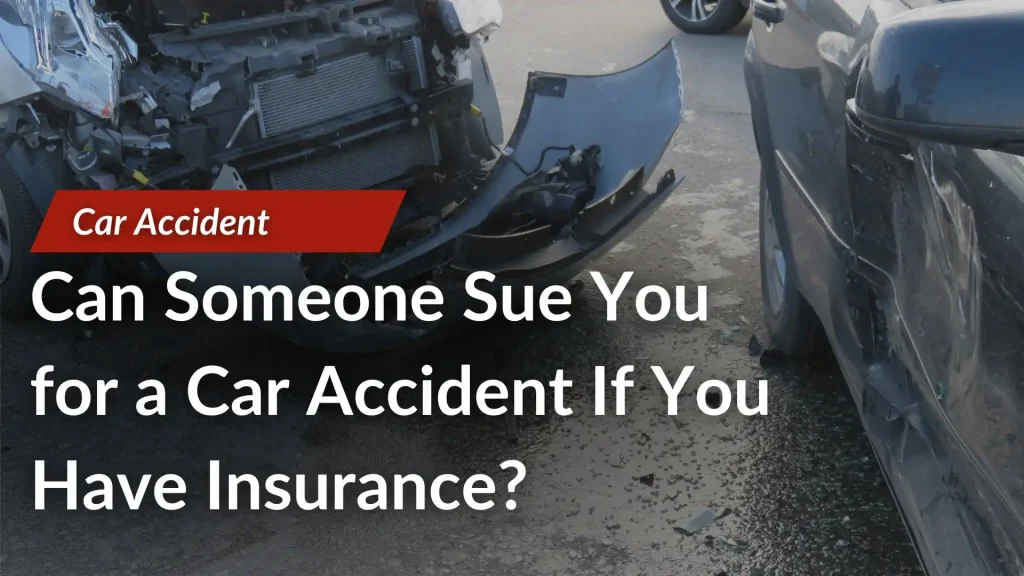 After a car accident in Tampa, you might assume that your insurance will take care of everything. But what if the other driver decides to sue you? Can someone sue you for a car accident if you have insurance?
After a car accident in Tampa, you might assume that your insurance will take care of everything. But what if the other driver decides to sue you? Can someone sue you for a car accident if you have insurance?
In short, yes, it’s possible to face a lawsuit even if you have insurance coverage. While a car accident lawsuit can be intimidating, it doesn’t mean you’re automatically at fault. It also doesn’t mean that you can’t recover compensation if the other driver caused the crash.
If you’re facing a lawsuit after a Florida car accident, call Jurewitz Law Group Injury & Accident Lawyers immediately. Our Tampa car accident attorneys can explain your legal options, protect your rights, and help you fight an unfair lawsuit.
The Role of Insurance After a Florida Car Accident
The primary purpose of auto insurance isn’t to cover your losses in a collision. Instead, insurance protects you financially if you cause a car accident. (Your insurance may cover your car repairs if you have collision coverage, but that’s a separate issue.)
If you cause a crash, you are liable for any injuries and property damage the accident caused. If you purchased the right coverage, your insurance will cover the injured party’s medical bills, lost wages, and other losses up to your policy limits. This coverage can prevent you from paying these costs yourself, which could otherwise be overwhelming.
In Florida, the no-fault insurance system changed, and those who initially pay for injuries sustained in a car accident are changed. Under this system, registered car owners must carry Personal Injury Protection (PIP) insurance. This coverage pays their medical expenses and some lost wages, regardless of who caused the accident. After a collision, each driver’s PIP insurance will pay for their initial medical care and other costs up to a certain limit.
However, if the other driver sustains severe injuries, they may be able to sue you for additional compensation. Additional insurance coverage is crucial, as it can cover these costs and help protect you in the event of a lawsuit.
Does Car Insurance Cover Lawsuits?
If someone sues you after a Florida car accident and you lose the case, your insurance will cover the other driver’s losses up to the limits of your policy. Florida does not require drivers to carry bodily injury liability insurance. Instead, the only insurance drivers must have is a minimum of $10,000 in PIP coverage and $10,000 in property damage liability coverage. If you didn’t buy additional coverage, you could pay for the other driver’s losses if you caused the collision.
Someone who files a lawsuit against you must prove that you caused the crash. Until they do so, they can’t force you or your insurance company to pay for their injuries. Furthermore, specific rules exist for stepping outside Florida’s no-fault system to file a lawsuit. According to state law, someone can only step outside the no-fault system to file a lawsuit against you if:
- Their injuries resulted in the permanent and significant loss of an “important bodily function.”
- They suffered a permanent injury other than scarring or disfigurement.
- Their injuries resulted in permanent, significant disfigurement or scarring.
- The injured party’s injuries proved fatal.
These rules mean that even if the other driver sustained injuries in a crash and you are found responsible, they must first rely on their PIP coverage or other insurance to pay for their losses. But, if the other driver meets these requirements and proves you caused the crash, your insurance will only pay for the other driver’s losses up to the limits of your policy. If the other driver’s losses exceed your coverage (or you don’t have liability coverage), you might have to pay for their injuries out of pocket.
Different Types of Car Insurance Coverage to Protect Your Finances
 You should purchase as much insurance coverage as you can afford. Whatever your policy costs now, it can save you money in the long run. Here are some different types of coverage you can purchase in addition to Florida’s mandatory PIP and property damage insurance:
You should purchase as much insurance coverage as you can afford. Whatever your policy costs now, it can save you money in the long run. Here are some different types of coverage you can purchase in addition to Florida’s mandatory PIP and property damage insurance:
- Liability Insurance – This is the most basic type of insurance coverage. It helps cover the other driver’s costs if you cause an accident, such as the other party’s medical bills, property damage, and legal fees. Liability insurance protects you from paying out of pocket for these expenses. You can purchase bodily injury liability insurance and increase your property damage liability coverage.
- Collision Coverage – Collision insurance helps pay for repairs to your vehicle after an accident, regardless of who caused the collision. This coverage is especially important if your car is damaged and you must fix it quickly without draining your savings.
- Comprehensive Coverage – Comprehensive insurance covers damage to your vehicle from non-collision events, such as theft, vandalism, or natural disasters. It helps protect your finances by covering repair or replacement costs unrelated to an accident.
- Uninsured/Underinsured Motorist Coverage – This type of coverage protects you if you’re in an accident with a driver who either doesn’t have insurance or doesn’t have enough to cover your losses. It ensures that you can still receive compensation for your injuries and property damage, even if the other driver cannot pay.
What To Do If Someone Sues You for a Car Accident
You must contact an attorney immediately if someone sues you for a car accident. The sooner you get legal help, the better your chances of protecting your rights and interests.
At Jurewitz Law Group Injury & Accident Lawyers, we understand how stressful it can be to face a lawsuit, especially after a car accident. Our experienced team can guide you through the process, explain your options, and build a strong case on your behalf. We can handle all communication with the other party and their insurance company, gather evidence to support your case and work to minimize your financial exposure.
Let our law firm handle the legal details so you can focus on moving forward with peace of mind. Call (619) 233-5020 now or complete our contact form for a free case review. Discover our recent victories to know how we can further assist you with your case.
Related Posts:
When Should I Sign a Car Accident Release of Liability Form?


